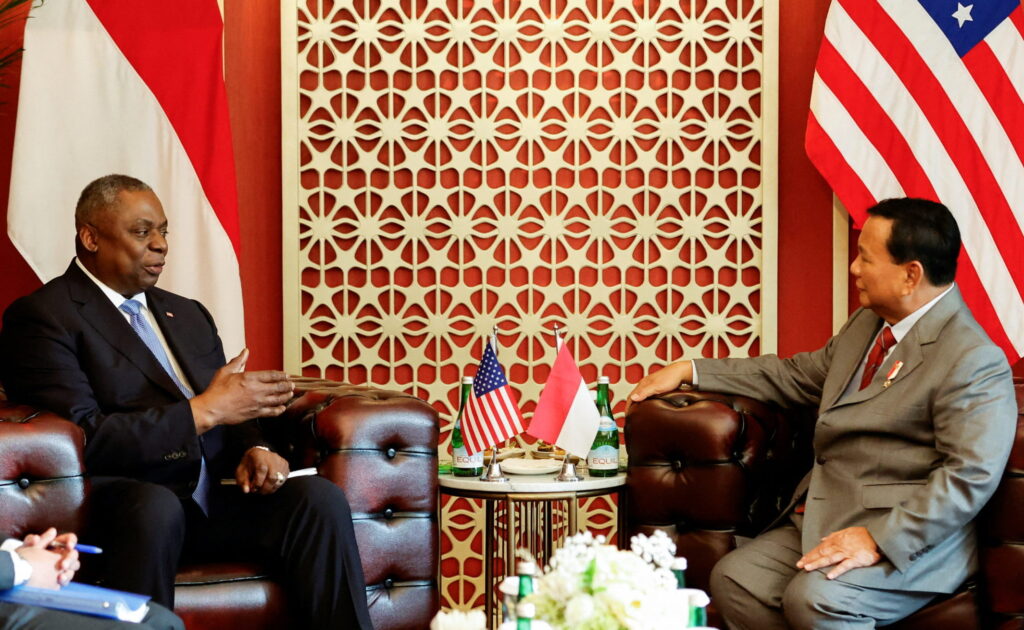Amid the intensification of US-China rivalry, the United States has struggled to enhance its partnerships with ASEAN, enabling China to grow its presence in the region. To this end, the Biden administration should bolster its public diplomacy with Southeast Asia.
ASEAN is a strategically and economically important region that the United States cannot afford to neglect. Handling 40 per cent of merchandise trade globally, Southeast Asia is poised to become the world’s fourth largest economy by 2030. Its proximity to China and other security partners like India, Japan and Australia also make it strategically important, especially in the event of any future conflict in the Taiwan Strait.
The Biden administration’s diplomacy in the region has faced challenges, affecting the international prestige of the United States. US President Joe Biden failed to make an appearance at the 43rd ASEAN Annual Summit in September 2023, much to the disappointment of ASEAN. US Vice President Kamala Harris attended in his place to reaffirm US interest in the ASEAN–US partnership. But Biden’s absence at the summit may be seen as a waning commitment by the United States to ASEAN leadership.
The United States must support ASEAN autonomy to counter Chinese encroachment in the South China Sea, as the People’s Liberation Army’s efforts to disrupt ASEAN centrality could impact the global economy and threaten ASEAN’s regional security. ASEAN counters encroachment by fortifying itself through its multilateral and bilateral relations, ensuring that any impact on ASEAN is felt on both sides of the Pacific. The United States continues to support the ASEAN security apparatus, through measures such as the joint naval drill hosted in Indonesia in 2023 in response to security concerns in the North Natuna Sea. The United States recognises that it must continue to emphasise its presence as a reliable security partner.
Since the September summit, the Biden administration has publicly bolstered its commitment to the region by emphasising the benefits of closer relations with Southeast Asia. Biden’s visit to Vietnam in September 2023 to establish a Comprehensive Strategic Partnership was viewed by Vietnamese media as an important step towards Vietnam and Southeast Asia’s goal of ‘a foreign policy of independence and self-reliance’. Vietnamese Minister of Foreign Affairs Bui Thanh Son reaffirmed this during his visit to Washington, DC last month, where he discussed the importance of his country’s ‘bamboo diplomacy’ and the US–Vietnam relationship. This agreement was a major vote of confidence for the United States from an ASEAN member-state, strengthening US security engagement in the region.
The United States also promotes relations through previously established programs within the region. Including the International Military Education and Training to promote its military commitment in the region. There are also trade and education programs like the Young Southeast Asia Leaders Initiative and the ASEAN–US Trade and Investment Framework Arrangement. Yet many programs remain largely unknown among ASEAN citizens due to a lack of publicity by the United States.
But the United States can do more to improve its public diplomacy with ASEAN and maintain favourable relationships in Southeast Asia amid rising US–China competition. Biden’s absence harmed his reliability as a leader in the international community. A failure to maintain a positive public image in the region can prevent the United States from future engagement with Southeast Asia. As one diplomat stated, ‘Biden’s absence will be felt throughout, and it is a missed opportunity to cement gains as China grows more unpopular’. The United States must now strengthen its prior commitments to Southeast Asia while publicly promoting them to gain a favourable public consensus.
Public diplomacy — defined by the US State Department as outreach and engagement that strengthens the relationship between the United States and the citizens of other countries — is vital. Both the United States and China must offer benefits without threatening ASEAN’s centrality. The challenge they face is acknowledging ASEAN’s balanced engagement with both powers while still trying to gain ASEAN’s favour. This challenge stems from ASEAN’s hedging strategy to ensure that ASEAN states do not have to ‘choose a side’ and can engage simultaneously with both powers with minimal consequences and maximum benefits.
Many security treaties and alliances between the United States and countries in the region — like the Quad and AUKUS — aim to counter Chinese expansionism. But ASEAN needs space to hedge its relations and avoid rigid alliances to support the ‘centrality, agency and leadership of regional institutions’ and its members. The United States must not jeopardise ASEAN centrality when prioritising diplomatic efforts with these institutions.
The Biden administration could bolster its public diplomacy strategies to raise trust with Southeast Asia. This should include dramatically increasing the number of diplomats in ASEAN states to help construct a comprehensive diplomatic network. This network can promote key military, economic and educational projects between the United States and ASEAN while addressing the immediate needs of individual member states. Though this strategy may not eliminate China’s influence, it will ensure a firmer US presence. Washington should also establish more comprehensive security partnerships with strategically critical countries, including Indonesia, Malaysia and Singapore.
These two strategies may help strengthen US confidence among ASEAN citizens while building stronger regional ties. But both are contingent on embracing regionalism despite ideological or political differences. If Trump wins the US presidential election in November 2024 and pursues a rigid ‘America First’ policy, the United States will likely lose important opportunities to engage with ASEAN.
Luke C Hahn is an independent International Relations researcher based in Washington, DC. His research focuses on East and Southeast Asian multilateralism and coalition building.


Leave a Reply